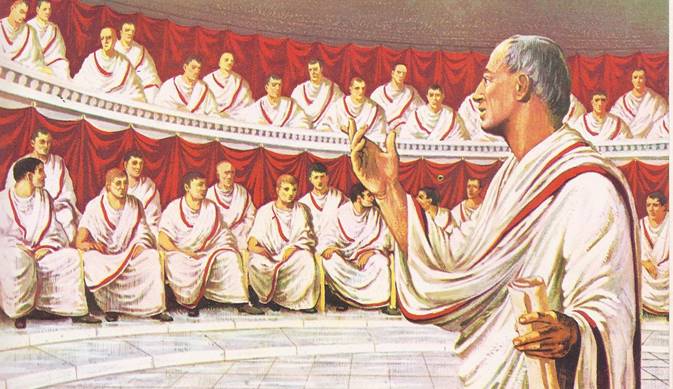If you had been a citizen of the ancient Greek city of Athens on a fine spring morning in 409 B.C., you would have gathered with thousands of your fellow citizens on a hillside inside the city. You would then have listened carefully to the discussion of various matters of business, conducted by the chairman and secretary of the meeting from a platform below and facing you. You would have seen an Athenian citizen thread his way from the hillside to this platform. This was a sure sign that he had a proposal to make to the voters. The citizen …
Read More »Tag Archives: Barbarians
China under the Han 206 B. C. – A. D. 221
THE vast East Asian land of China is named after its first family of emperors, the Ch’in. The Ch’in brought the country together under one government and built the Great Wall to keep out northern barbarians. They were in such a hurry to get things done, however, that they drove their subjects too hard and lost their support. In 206 B.C., after only a few years in power, they were overthrown. The Ch’in were replaced by an imperial family named Han. The Han dynasty ruled for two centuries before the time of Christ and then, after a break, for another …
Read More »The City of Caesar 80 B. C. – 44 B. C.
THE story of Rome in the years after Sulla’s death was the story of a partnership of power. It was the tale of three men who bargained for the world — a rich man, a poor man and a man who was not only a hero, but looked it. The rich man was Crassus, who had become a millionaire by setting up the only fire department in Rome. The tall buildings and narrow, crowded streets of the city made a fire a constant danger. When one house burned to the ground, the buildings on either side were likely to fall …
Read More »The City Divided 130 B. C. – 70 B. C.
MARCUS TULLIUS CICERO, a young statesman known for his dramatic speeches, stood before a panel of judges in a courtroom in Rome. He stared at them angrily. For fifty days he had travelled through Sicily, collecting facts about the crimes committed by Caius Verres, the man who was on trial. Now the judges had told him that there would not be time to listen to his evidence. Cicero knew that the judges had been bribed. For it was no ordinary criminal that he meant to send to prison or to death. Caius Verres was an aristocrat and a senator and …
Read More »


